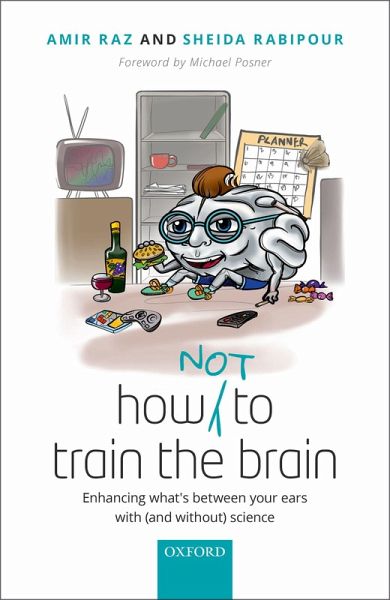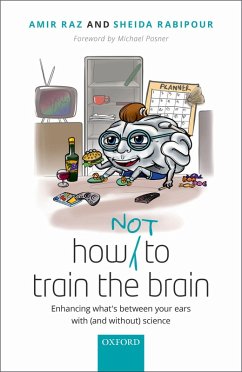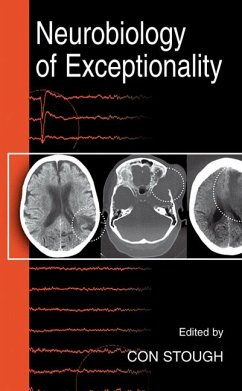
How (not) to train the brain (eBook, PDF)
Enhancing what's between your ears with (and without) science
Versandkostenfrei!
Sofort per Download lieferbar
28,95 €
inkl. MwSt.
Weitere Ausgaben:

PAYBACK Punkte
14 °P sammeln!
Brain training is all the rage. Commercial and clinical initiatives capitalize on trailblazing interdisciplinary research that spans domains such as education, psychological and brain science, cognitive remediation, and mental health. Promotional materials boast that we can learn to think and respond faster, focus better, and control our emotions; companies and authors market techniques to boost memory, increase confidence, and overcome cognitive impairments. 'How (not) to Train the Brain' examines the field of cognitive fitness and scrutinizes the scientific evidence in support of brain train...
Brain training is all the rage. Commercial and clinical initiatives capitalize on trailblazing interdisciplinary research that spans domains such as education, psychological and brain science, cognitive remediation, and mental health. Promotional materials boast that we can learn to think and respond faster, focus better, and control our emotions; companies and authors market techniques to boost memory, increase confidence, and overcome cognitive impairments. 'How (not) to Train the Brain' examines the field of cognitive fitness and scrutinizes the scientific evidence in support of brain training techniques. With the potential to affect millions this topic is important for scientists, practitioners, educators, and the general public. While many a consumer often marvels at this highly commercialized field, discerning fact from fad becomes a challenge given the abundance of products, publications, and contexts. Moreover, available products prey on the naivety of individuals unfamiliar with the nuanced field of neuroscience, advertising programs that lack scientific validation or presenting unfounded arguments. In this book, the authors review data from hundreds of articles and provide an overarching account of the field, separating scientific evidence from publicity myth and guiding readers through how they should - and should not - train the brain. They describe existing techniques, including those rooted in scientific research, and survey methods that purport to yield measurable improvements. Intended for a wide audience, this book taps a timely topic by highlighting the most salient approaches to boosting brain function while identifying those that don't seem to work.
Dieser Download kann aus rechtlichen Gründen nur mit Rechnungsadresse in A, B, BG, CY, CZ, D, DK, EW, E, FIN, F, GR, HR, H, IRL, I, LT, L, LR, M, NL, PL, P, R, S, SLO, SK ausgeliefert werden.













